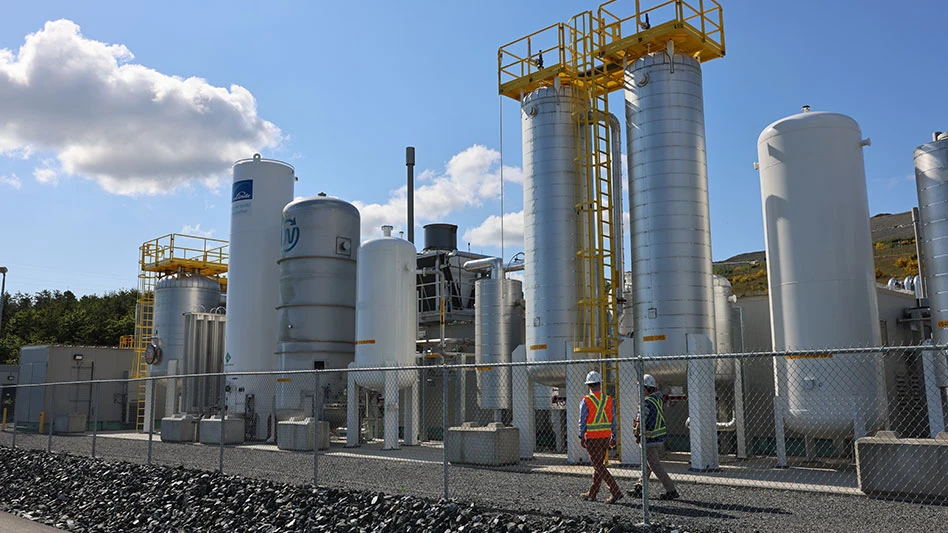
Photo courtesy of Case Construction Equipment
The promise of reductions in both air and noise pollution—as well as operating costs—should help electric-powered construction equipment gain market share during the next 20 years, a research firm predicts.
According its “Electric Vehicles in Construction 2024-2044: Technologies, Players, Forecasts” report, United Kingdom-based IDTechEx says construction equipment powered by diesel fuel can be a creator of constant costs and air pollution, with continuous negative impacts on the environment and communities.
The report, which can be ordered through the IDTechEx website, explores several aspects of electric construction equipment, including battery chemistries, major players in the market and what it calls “positive effects on workers and society.”
Finding the right battery chemistry for electric construction machines runs hand in hand with offering costs that are low enough to ensure the total cost of ownership over the vehicle’s life time is cheaper than diesel alternatives, IDTechEx says.
Construction machinery batteries may differ from what suits the passenger vehicle sector, as construction machines require steady power over longer durations and don’t require as high power densities, according to the firm.
Hydraulic systems currently used to move large machines could be replaced with fully electric linear actuators in electric construction vehicles.
“This change could bring about less need for vehicle maintenance as they become cleaner and more robust, resulting in lower machine running costs,” IDTechEx says.
Lithium-iron phosphate (LFP) batteries currently are used inside more than half of construction sector electric machines as they provide durability, and the performance requirements for construction machines to run efficiently, according to IDTechEx.
The greater energy density associated with nickel-manganese-cobalt (NMC) batteries could make them a more suitable choice for smaller machines, as they would provide greater battery life within a smaller chassis.
Currently, NMC batteries are more commonly used in Europe and North America and LFP batteries in China, with IDTechEx saying more than 75 percent of European and North American large vehicle battery pack manufacturers use NMC technology.
“There have been questions surrounding the ability of electric machines to complete a full day’s work on one charge,” IDTechEx says. “Fast charging, tethering or battery swapping could solve this problem, but most newer machines have big enough batteries to carry out an average day’s working requirements with relative comfort.”
On the jobsite, noise pollution reduction is one of construction vehicle electrification’s largest and most obvious effects.
“Not only will operators be better able to hear and give clear instructions without the need for noise-cancelling headphones, but the surrounding areas of construction sites won’t be so affected by loud engines and vibrations, meaning there could be fewer complaints about ongoing work," the report says.
Emissions also would be moved off-site (to electricity power plants), meaning “the smoky emissions from diesel engines will no longer create an unclean environment, which again will benefit not only the health and wellbeing of workers but people in the wider community,” IDTechEx says.
Across seven construction vehicle categories, IDTechEx has identified more than 200 makes and models. The firm predicts that more than 650,000 electric-powered construction machine sales will occur in 2044, with the market by then exceeding $126 billion in value.
Latest from Waste Today
- WasteExpo 2025: The opportunities and challenges of integrating AI in the waste industry
- Casella drivers honored by NWRA
- Bioenergy Devco rebrands
- Ecogensus acquires 2 recycling facilities
- Routeware celebrates 25 years of innovation
- Montana city approves compost facility improvements
- Willows offer a nature-based solution to reducing leachate volumes
- REI outdoors retailer hits zero waste target





